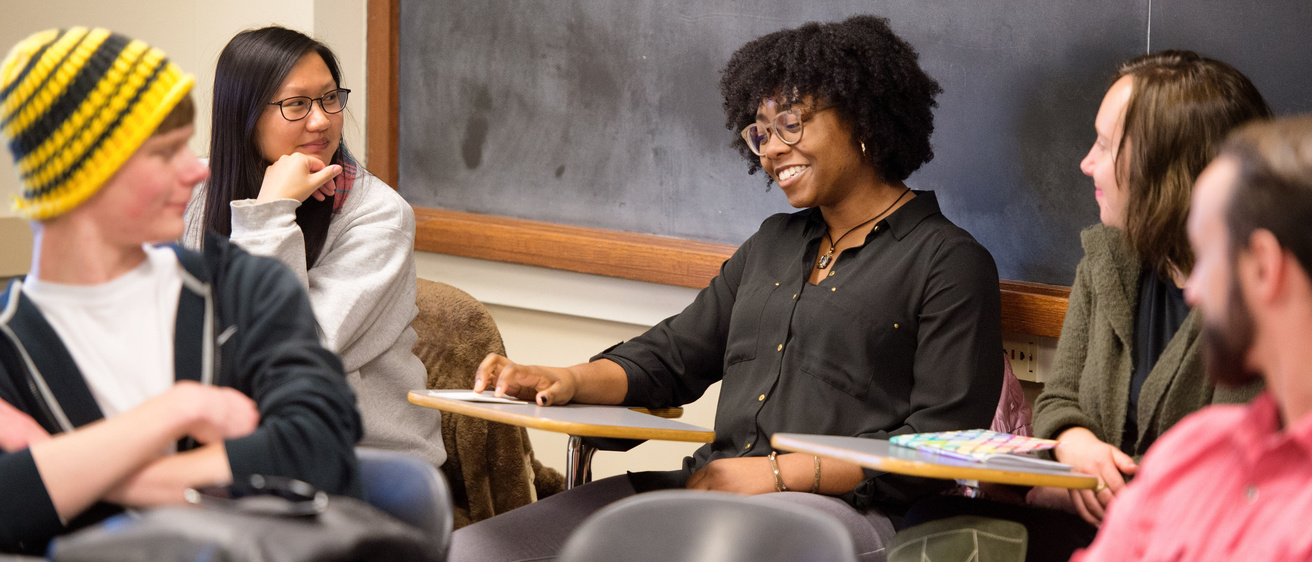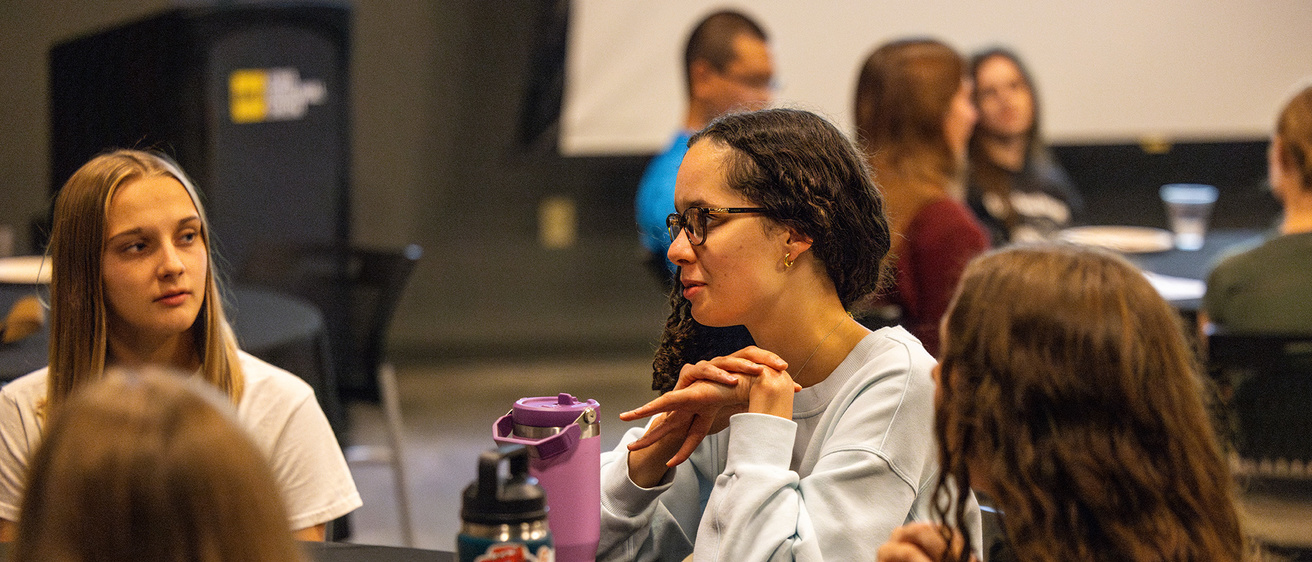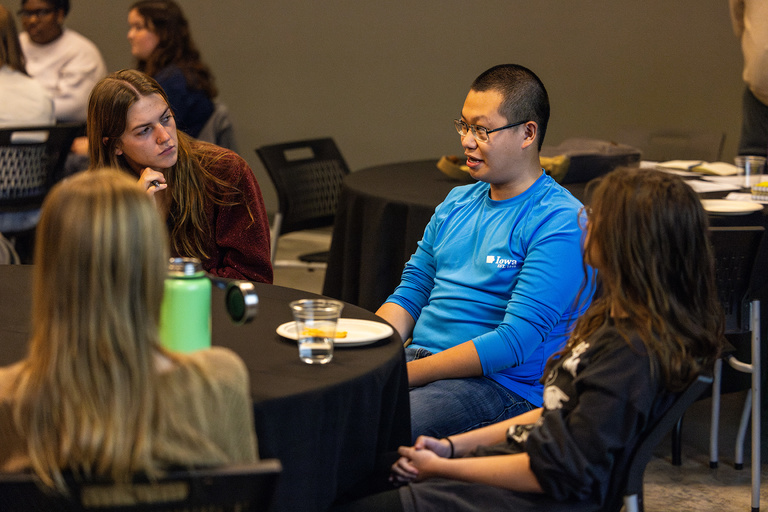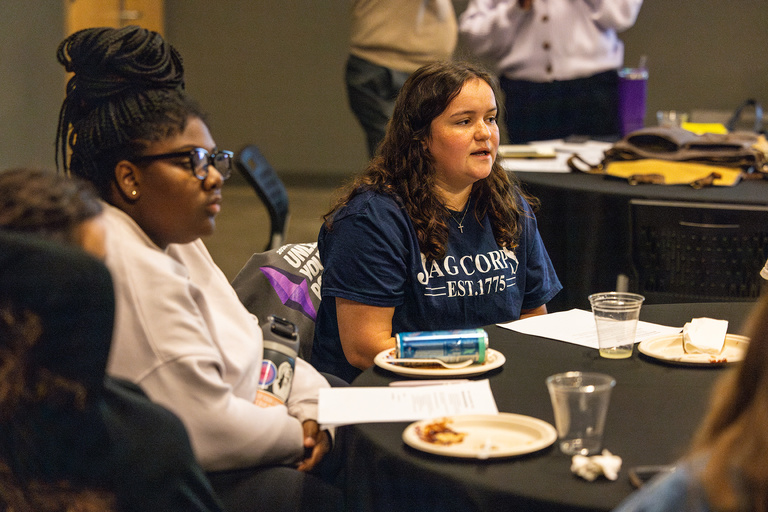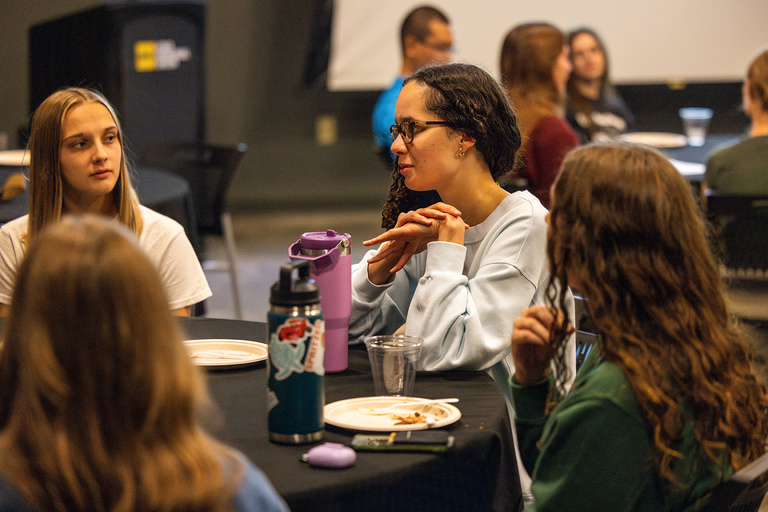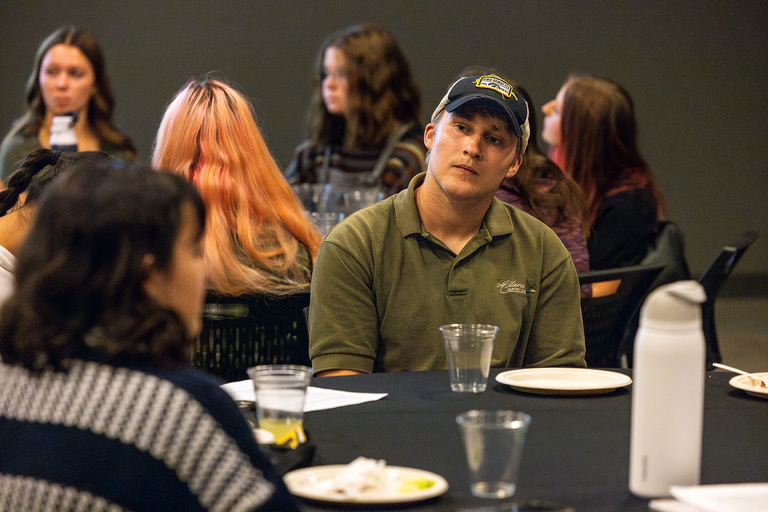Civic dialogue is a skill set focused on mutual understanding, close connection, and the discovery of new possibilities, particularly useful for exploring difficult issues with others and our community.
Why is civic dialogue important?

“Hearing others’ stories made me feel like I understand their viewpoints more. Knowing how someone came to believe what they do makes their stance more human and relatable, even if you don’t agree.”

“Civic dialogue is vital for doctors, technicians, or nurses—I hope to improve skills like self-awareness, active listening, and teamwork to make me a better fit in the healthcare community"

“I want to improve my ability to just sit and listen to what others have to say without judging it at first. You have to first be a good listener in order to truly respect someone.”
Civic dialogue builds bridges between people with different perspectives and views who need to solve problems together.
About the Initiative
Building a Campus Culture of Curiosity and Connection
What is the Civic Dialogue Initiative?
The Civic Dialogue Initiative (CDI) helps students develop the mindset and skills to explore perspectives, embrace complexity, and engage in dialogue as a lifelong practice. Through programs, partnerships, and hands-on learning, we prepare students to navigate challenging issues in an interconnected world.
Why Civic Dialogue Matters
In a world of diverse viewpoints, civic dialogue is more than managing difficult conversations—it’s about creating space for people to think together, live in community, and collaborate on solutions that strengthen society.
This practice:
- Encourages listening and discernment, not just debate
- Builds understanding across differences
- Turns conflict into an engine for innovation
Our Approach
- Integrated Programs – Opportunities to learn and practice dialogue skills
- Campus Partnerships – Working together to foster a culture of curiosity
- Experiential Learning – Real-world experiences that prepare students for civic life
The Impact
In higher education, civic dialogue is essential. It equips students—and our entire campus community—to approach complexity with openness, craft thoughtful ways forward, and lead with empathy and insight.
Together, we can create a campus where dialogue drives understanding and innovation.
Civic Dialogue Programs and Activities
Dinner Table Dialogue: Engaging American Values with Nuance
Thursday, April 2, 6-7:30 p.m. | IM
As the nation approaches its 250th anniversary, this moment invites reflection not only on the values that have shaped American life in the past, but also on the values we carry forward and the ones we hope will guide our shared future. Dr. Martín Carcasson of Colorado State University’s Center for Public Deliberation will explain why improving how we talk about our values is critical to reducing toxic polarization and helping us come together across differences to address our shared problems. Students will participate in hands-on activities that help them better understand their values and those of fellow students, both recognizing common ground and learning to better engage differences.
This event is open to all students and is designed to be interactive. Dinner will be provided, and RSVP is requested
Residence Education Pilot
In fall 2025, the University of Iowa will continue to pilot the Civic Dialogue Initiative in residence halls on campus. The Civic Dialogue Initiative aims to enhance students' abilities to engage in meaningful dialogue and collaborate with individuals holding differing views. By focusing on developing foundational skills for civic dialogue, the initiative aims to equip students with essential competencies for healthy and effective communication, contributing to their academic success, leadership skills, and personal development.
First-Year Seminar
Speak, Listen, Connect: This course is designed to enhance civic dialogue skills crucial for engaging with diverse perspectives and fostering meaningful collaborations and relationships. It offers a rich blend of theoretical insights, hands-on activities, and collaborative discussions to cultivate empathy, active listening, and conflict resolution abilities.
The Power of Mindset
Mindsets have the power to shape every conversation you have.
Warrior mindset
Warrior mindset is a focus on winning an argument and proving that we are right.
Explorer mindset
Explorer mindset is a focus on learning and understanding as much as we can about another person.

“Leadership requires the ability to communicate with individuals who are different than us. And we must be able to do that, and debate vigorously, without dehumanizing. I’m excited this initiative will teach such vital lessons.”

“I discovered my group shares similar beliefs, and that dialogue is a great way to break down our assumed differences. Going forward, I’d like to use my dialogue skills throughout my upper-level Political Science classes and in my future legal career.”
